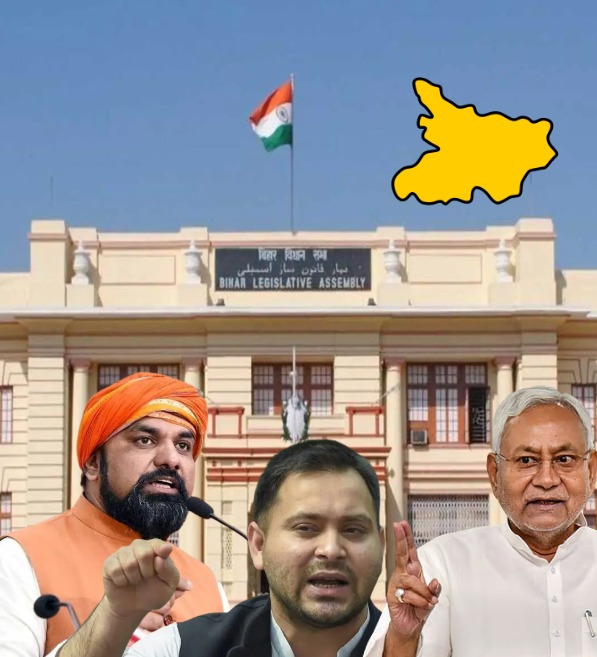By Justice (R) Markandey Katju (India)
Judging by what one sees, Tejashwi Yadav seems all set to be the next Chief Minister of Bihar. The calculation might not be too far off, considering the electoral math and the increasing disillusionment with the current regime. The Yadav community and other OBCs and EBCs roughly 36 percent and Muslims at nearly 18 percent constitute the strength of the Rashtriya Janata Dal-RJD regime nationally. This alliance’s buoyancy compounds the annoyance, now spreading across castes; the Chief Minister Nitish Kumar’s fatigue contributes to the wind that seems to be in the favor of Tejashwi. Nitish has crammed for much of the last two decades exchanging the coalition suits; first with the BJP, then with the RJD-Congress combine, then again with the BJP and reconsidering his politics. But the legacy will always be a matter of controversy.
There were a few accomplishments in the form of roads and schools in the first ten years of his rule, but nearly a quarter remains underdeveloped: poor, suffering massive migration, and unemployment. Many of Nitish’s era expressions became the symbol of politics and vacancies. Tejashwi Yadav, the new face of the RJD, the political legacy of Lalu Prasad Yadav, has the weight of hope and some radical doubts. But the youth leader has set himself up in a unique way, portraying himself as the maker of the “New Bihar,” spelling optimism and elevating optimism. For all Tejashwi’s motivations, he is now representing a new vision, and his vast goals need to be grinded into close scrutiny.
He has promised that one member of each family in Bihar will be given a government job. However, Bihar has around 2.75 crore families. Since it would cost between six to nine lakh crore to provide jobs to men, such an enormous stimulus would be fiscally impossible. This is because Bihar has very little revenue-generating opportunities and is heavily dependent on the central government. Another measure he promised to implement after becoming elected was to give $30,000 to each woman in Bihar every year. It is difficult to fathom how Tejashwi will generate so much money to pay women having agricultural land equivalent to a year’s salary. Considering Bihar’s rickety economic position and the lack of significant industrialization, where would he get the necessary amount to finance his electoral commitments?
Tejashwi claims that new industries would come into the state and that employment would be available in abundance. Nonetheless, the issue is quite different. Why would industries invest in a state with a social crisis, poor police, and unstable infrastructure? A stable political climate, transparency, and a secure environment are required to attract investors and enterprises to Bihar. These are all qualities that Bihar is currently lacking..setattr Also, to his satisfaction, Tejashwi admitted that maintaining the rule of law was the most significant purpose.
However, this idea is rooted in a bitter past. The RJD regime’s “jungle raj” phase, marked by corruption and violence, is still fresh in people’s memories. Many fear that RJD will someday return to power, and the violent leaders associated with him within the party would be emboldened. They will ruin whatever positive plan Tejashwi would like to execute. It is primarily due to recent ticket allocation. Why would RJD nominate Bhojpuri singer Khesari Lal Yadav from Chhapra? People think that after a win, he may return to Mumbai and, in enjoying his entertainment life, perhaps forget about the World.
Indeed, I can’t help but think of Neha Singh Rathore, the other Bhojpuri artist one who writes socially conscious songs, political songs, songs about the plight of the oppressed and the tormented and who was also harassed and charged with offenses. And yet, she did not remain silent; she refused to be apolitical in a political world. In the case of the RJD, one might imagine whether they could not have found their own Neha Singh Rathore. They could, but they didn’t, and in this way they decided to swim with the tide and not against it. In some ways, therefore, the rise to power of Tejashwi Yadav feels like an event that was both inevitable and at the same time utterly uncertain.
Demographically, the youth of Bihar was waiting for it, and the people of Bihar made it possible, while practically speaking, it is still a very open question how a politically engaging and captivating personality would fare in state administration that requires much more than electoral arithmetic and the powers inherited from one’s earlier-than-life-defining a parent. The point is, Bihar today is at a critical juncture its youth demand jobs, its women demand respect, and thousands of migrants who had to run away from their homes during the lockdowns dream if they ever have any reason to come back. If Tejashwi wishes to be the force of transformation that creates that reason, he will have to demonstrate by deed rather than word that power might be principled, and leadership might surmount dynasty, demagogue, and patronage. Bihar cannot afford to be repeated; Bihar needs to be redefined. Perhaps Tejashwi will do that, and perhaps he won’t but the people of Bihar, at least, have had their first experience that taught them to not have infinite patience.





